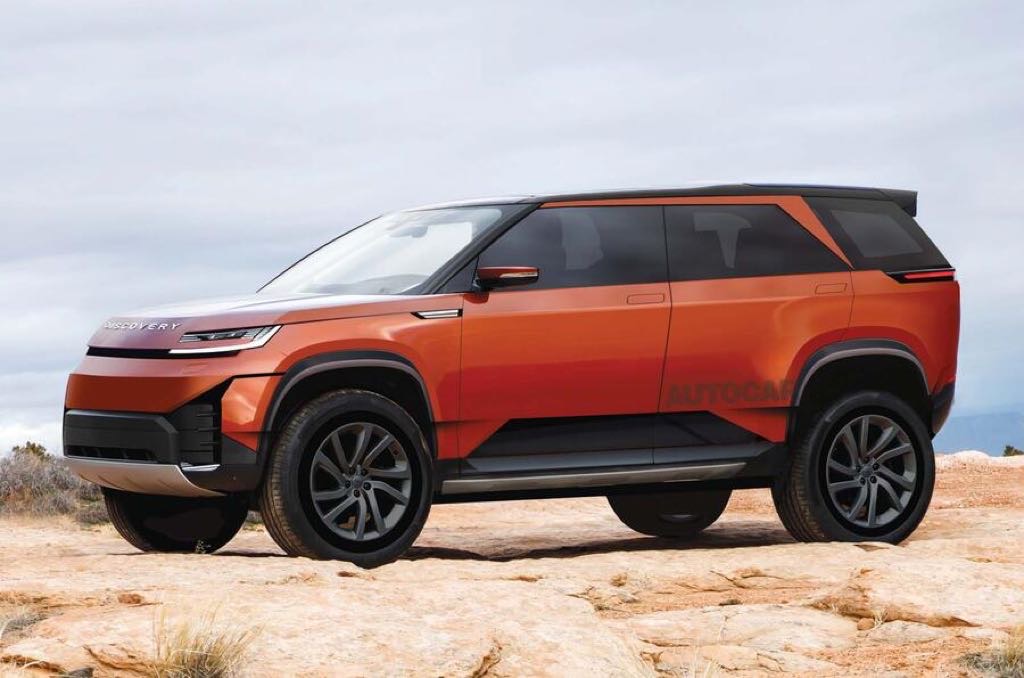
Land Rover Discovery to get a new character in its sixth generation avatar
Jaguar Land Rover is set to reinvent its Discovery brand for its upcoming sixth generation, aiming to carve out a distinct identity for the model. The decision follows concerns that the Discovery has been overshadowed by its sibling, the Defender, which has cannibalised a significant portion of its sales.
The current Discovery, which has been on the market since 2017, is the oldest model in the Land Rover lineup and one of its slowest-selling. In 2023, global sales of the Discovery amounted to just 16,750 units, almost half that of the more popular Discovery Sport. By comparison, the Defender achieved 1,10,367 sales in the same period, underscoring the disparity between the two models.
Despite the Discovery’s modest sales performance, accounting for just 4% of JLR’s total sales, the British automaker remains committed to revitalising the brand. The upcoming sixth generation will focus on positioning the Discovery around the theme of “family adventures,” differentiating it from the Defender, which offers a broad range of engines, trims and body sizes.
Mark Cameron, head of the Discovery and Defender brands at JLR, acknowledged the challenge of differentiating the two models. “If you look from a product perspective, Defender came in and sat quite squarely on top of Discovery and cannibalised a lot of that business”.
To address this, JLR is exploring new design directions for the Discovery, potentially incorporating elements from MPVs. The Volkswagen ID Buzz has been mentioned as a possible reference, suggesting that the new Discovery could adopt a more versatile and spacious design. This clean-sheet approach could result in a model as radically different from its predecessor as the original Range Rover Evoque was from other Range Rover models.
The next-generation Discovery will be one of four stand-alone brands within JLR, alongside Range Rover, Defender and Jaguar. This restructuring is part of a broader strategy to reduce internal competition and clearly define each brand’s unique territory. “Recreating what Discovery stands for, we absolutely have to make sure it sits in a really unique territory,” Cameron emphasised.
The new Discovery is expected to be built on JLR’s versatile MLA platform, which supports both internal combustion engines and electric powertrains. While JLR has confirmed plans for electric Land Rovers by 2026, the Discovery 6 is likely to offer a choice of hybrid and electric options, similar to the approach taken with the Range Rover.
The electric Range Rover, set for release in 2025, will likely provide insight into what can be expected from an electric Discovery. The Range Rover will feature an advanced 800V electric architecture designed for rapid charging, with performance benchmarks comparable to the existing V8 model.
JLR is also developing a new halo model for the Discovery, which will be crafted by the company’s SVO bespoke division. This flagship model will have its own unique performance nameplate, further distinguishing it within the JLR lineup. Jamal Hameedi, head of SVO, highlighted the creative freedom allowed by this clean-sheet approach, noting that it offers opportunities for innovation but also presents challenges.
Special-edition models like the upcoming Discovery flagship are seen as key to boosting profit margins, according to JLR UK boss Patrick McGillycuddy. These models, which are produced in limited volumes, are designed to be “incredibly well-engineered” and offer a premium appeal that supports the company’s financial goals.
As JLR moves forward with its plans for the Discovery, the company aims to reposition the model in a way that leverages its heritage while embracing new design and technology trends. Whether this strategy will be enough to rejuvenate the Discovery brand and reverse its sales decline remains to be seen.




